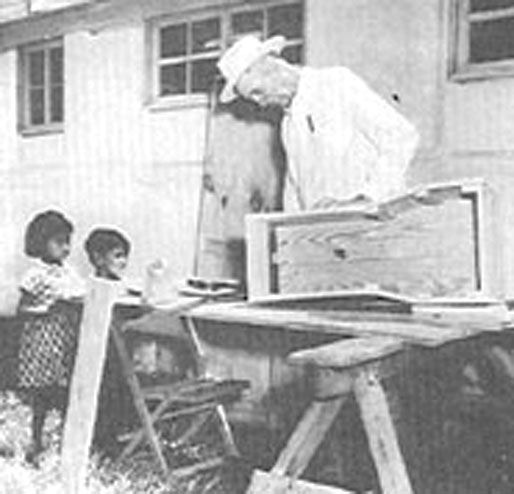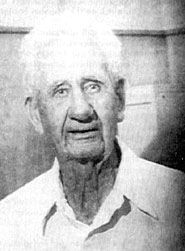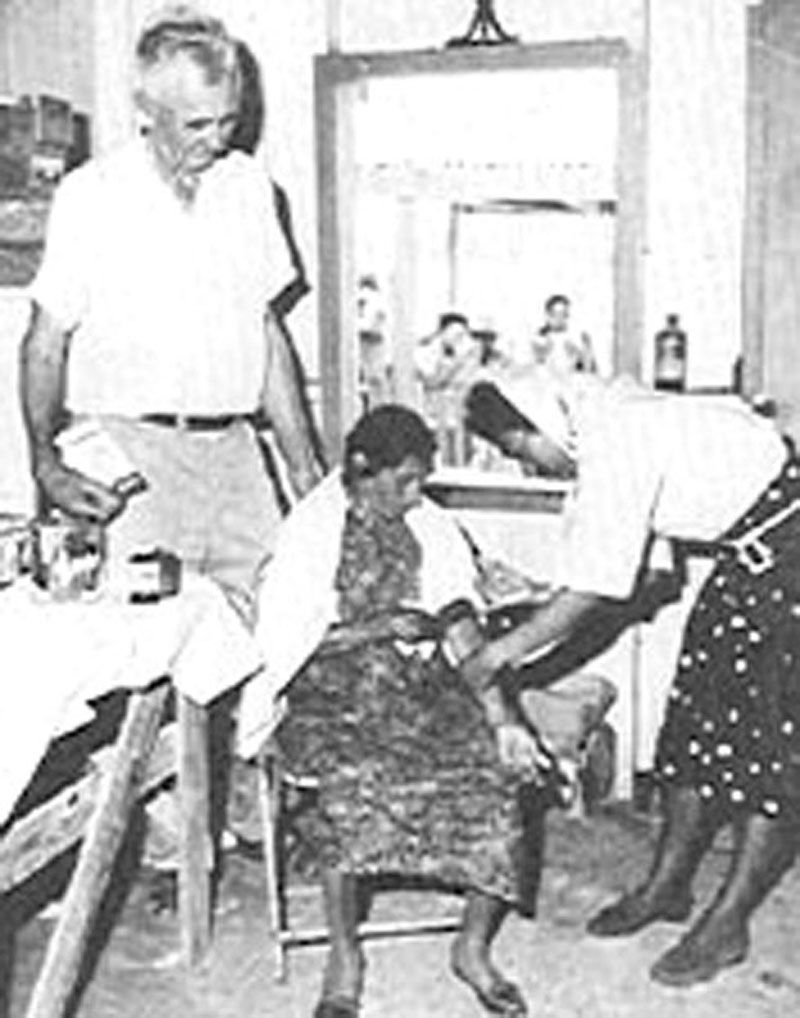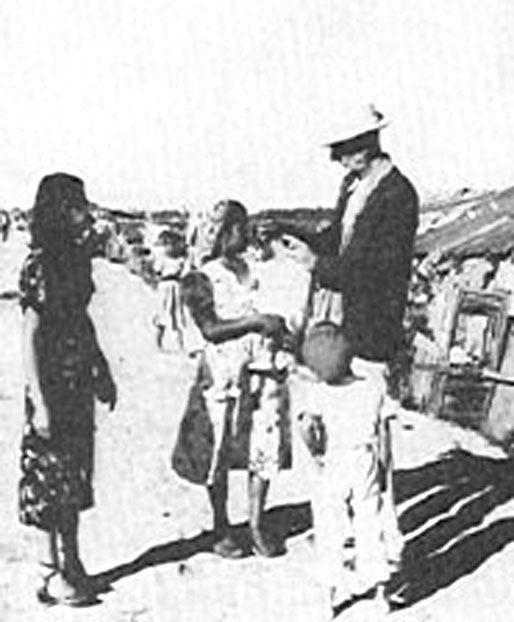BY NORMAN ROZEFF
In the late 1930s and early 1940s Harlingen, Texas, was still dependent on agriculture and citrus orchards for its successful economy.
This South Texas community, not far from the border with Mexico, was still dependent upon Mexican farm labor and would continue to be as the country entered World War II, and labor shortages were created by the military draft.
Harlingen city limits and nearby surroundings still contained a number of a lots utilized for agriculture as urbanization was yet to be initiated and the establishment of the Harlingen Army Air Field which would considerably impact the city’s retail outlook was just on the horizon.
It was into this situation that Frank Ferree, with only an eighth-grade education and French Huguenot ancestry, found when he came to the Lower Rio Grande Valley and Harlingen in particular. As noted in a website dedicated to the Ferree family:
• “Born August 6, 1894, in a small village on the Platte River near Omaha, Nebraska.
• When he was fifteen the family moved to northwestern Nebraska to homestead. In the eighth grade at that time, the move ended his formal schooling.
• Loved the pioneer life in Nebraska, the open spaces of the plains, and being close to nature.
• At age twenty-one he left home. After a year he returned and later described this excursion away from home as the darkest days of his entire life.
• Filed his own homestead claim but soon tired of the hard labor of making a home in the rough country of Nebraska.
• Joined the army in 1918 and served in France.
• Got a job with the postal service as a rural mail carrier and for ten years delivered mail on horseback, carrying letters in a saddlebag strapped behind his saddle. Later bought a Model T Ford and hired his brother, Fred, to help.
• After the death of his father, he and his mother loaded the Model T with their belongings and headed west settling near Central City, Colorado, on an eighty acres homestead. Over time increased his holdings to three thousand acres.
• Began developing an interest in faith healing and studied the science of numerology.
• Mother died in 1937. Grief stricken, he traded the three thousand acres in Colorado for eight hundred acres of Wisconsin lake front timberland sight unseen.
• Without ever seeing his Wisconsin land, he headed for Hollywood, California, where he worked for a while as a caretaker of a mansion.
• Deciding to check out his timberland, he traveled to Wisconsin. Sold the trees for lumber and the lake front property to a developer.
• From a man in Denver, he bought twenty-three acres of land just outside the then city limits of Harlingen, Texas, and headed south.”
Once settled just outside Harlingen, he bought an old frame house, had it moved near the road that bordered his property; divided six acres to sell lots; built a small studio-type building; hung out a shingle and began giving massage treatments. At age 48, he experienced a spiritual event that would change his life forever. He had come down with a fever that lasted about two weeks and then reoccurred periodically for a year.
For the very first time he would ask God for something — to heal him. Reportedly he was then cured in seconds. This led him to a religious awakening, to the Scriptures, and a deep religious conviction which he kept mostly to himself. Knowing that Jesus healed the sick, Frank embarked on a mission to cure the sick using any and all means possible. In doing so he sought help where help could be provided. This became Frank’s mission in life.
As the Handbook of Texas Online relates, “Although he did not belong to a church, he was an extremely religious and contemplative man. By the 1940s the Bible had become his source book, and he began to pattern his daily life after the examples of Jesus. He started to help the poor and the sick in an extemporaneous and understaffed organization that he called Volunteer Border Relief. It was headquartered in a ramshackle house in Harlingen.”
This source goes on to relate, “A tall, gaunt man with pendulous ears and a bulbous nose, Ferree always dressed in tire-tread sandals and ragtag clothes. Thus attired, he canvassed the alleys of Harlingen, virtually begging restaurateurs and grocers to give him the food or goods that they were discarding, so that in turn he could give these things to the poor. The Valley citizenry was at first taken aback by his behavior. But many merchants, newsmen, doctors, and wealthy individuals, both in the United States and northern Mexico, were won over by his kindness and persistence and began to champion his cause. He established two distribution and clinic sites, one in Matamoros and the other in Reynosa, where he went weekly to dispense food, second-hand clothes, and medicines. Because he could perform medical procedures legally in Mexico, he frequently gave injections at these clinics. He arranged for doctors to perform countless free operations on afflicted people, especially children with cleft palates.”As related. he turned his attention and efforts to the desperately poor Mexican families along the border. He eventually operated a small clinic in a donated building, and distributed medicine, food, and clothing to the needy. In addition he sought fair and better wages for Valley and migrant agricultural laborers. In 1955 when Hurricane Hilda wreaked havoc on the Gulf coast area near the city of Tampico in Mexico, Ferree quickly assisted. “Ferree was able to mobilize a relief mission that employed daily cargo flights from Harlingen Air Force Base carrying food, blankets, and other necessities.”
Many of his efforts were well recognized, so much so that signed orders from the Mexican president allowed him to cross the border trouble free to pass necessities of life to the poor and needy in Mexico without harassment from border officials.
To Ferree’s credit his organization was managed with minimum overhead and could respond quickly to emergencies without bureaucratic encumbrances. His work today is being carried on by the Frank Ferree Border Relief organization.
Many accolades and honors would recognize this modest man’s work. He was twice nominated for the Nobel Peace Prize. “In 1960 he was invited by President Dwight D. Eisenhower to a black-tie dinner in Washington, for which he had to borrow a tuxedo, and in 1982 he received a letter of commendation from President Ronald Reagan.”
Other honors were bestowed upon him by the Freedom Foundation, the Mexican state of Tamaulipas Governor, the mayors of a number of cities both in the United States and Mexico, schools, and service clubs among still others.
Perhaps his personality is best exhibited by the positive epithets given him, such as “Border Angel”, “Gringo Messiah”, “Saintly Scavenger”, “El Amigo” “Holy Man of Harlingen”, “Holy Man of the Rio Grande”, and “Albert Schweitzer of the Rio Grande Valley.” His work for the needy continued until his death on March 10, 1983, at the age of eighty-nine. He is buried on his land on North 7th Street, Harlingen.







